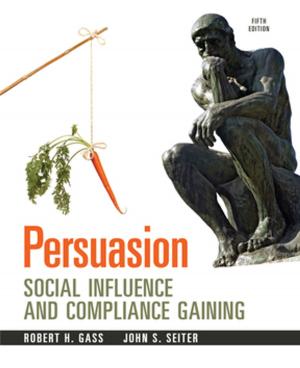| Author: | ISBN: | 9781317754213 | |
| Publisher: | Taylor and Francis | Publication: | June 27, 2014 |
| Imprint: | Routledge | Language: | English |
| Author: | |
| ISBN: | 9781317754213 |
| Publisher: | Taylor and Francis |
| Publication: | June 27, 2014 |
| Imprint: | Routledge |
| Language: | English |
In Remembering Genocide an international group of scholars draw on current research from a range of disciplines to explore how communities throughout the world remember genocide. Whether coming to terms with atrocities committed in Namibia and Rwanda, Australia, Canada, the Punjab, Armenia, Cambodia and during the Holocaust, those seeking to remember genocide are confronted with numerous challenges. Survivors grapple with the possibility, or even the desirability, of recalling painful memories. Societies where genocide has been perpetrated find it difficult to engage with an uncomfortable historical legacy.
Still, to forget genocide, as this volume edited by Nigel Eltringham and Pam Maclean shows, is not an option. To do so reinforces the vulnerability of groups whose very existence remains in jeopardy and denies them the possibility of bringing perpetrators to justice. Contributors discuss how genocide is represented in media including literature, memorial books, film and audiovisual testimony. Debates surrounding the role museums and monuments play in constructing and transmitting memory are highlighted. Finally, authors engage with controversies arising from attempts to mobilise and manipulate memory in the service of reconciliation, compensation and transitional justice.
In Remembering Genocide an international group of scholars draw on current research from a range of disciplines to explore how communities throughout the world remember genocide. Whether coming to terms with atrocities committed in Namibia and Rwanda, Australia, Canada, the Punjab, Armenia, Cambodia and during the Holocaust, those seeking to remember genocide are confronted with numerous challenges. Survivors grapple with the possibility, or even the desirability, of recalling painful memories. Societies where genocide has been perpetrated find it difficult to engage with an uncomfortable historical legacy.
Still, to forget genocide, as this volume edited by Nigel Eltringham and Pam Maclean shows, is not an option. To do so reinforces the vulnerability of groups whose very existence remains in jeopardy and denies them the possibility of bringing perpetrators to justice. Contributors discuss how genocide is represented in media including literature, memorial books, film and audiovisual testimony. Debates surrounding the role museums and monuments play in constructing and transmitting memory are highlighted. Finally, authors engage with controversies arising from attempts to mobilise and manipulate memory in the service of reconciliation, compensation and transitional justice.















